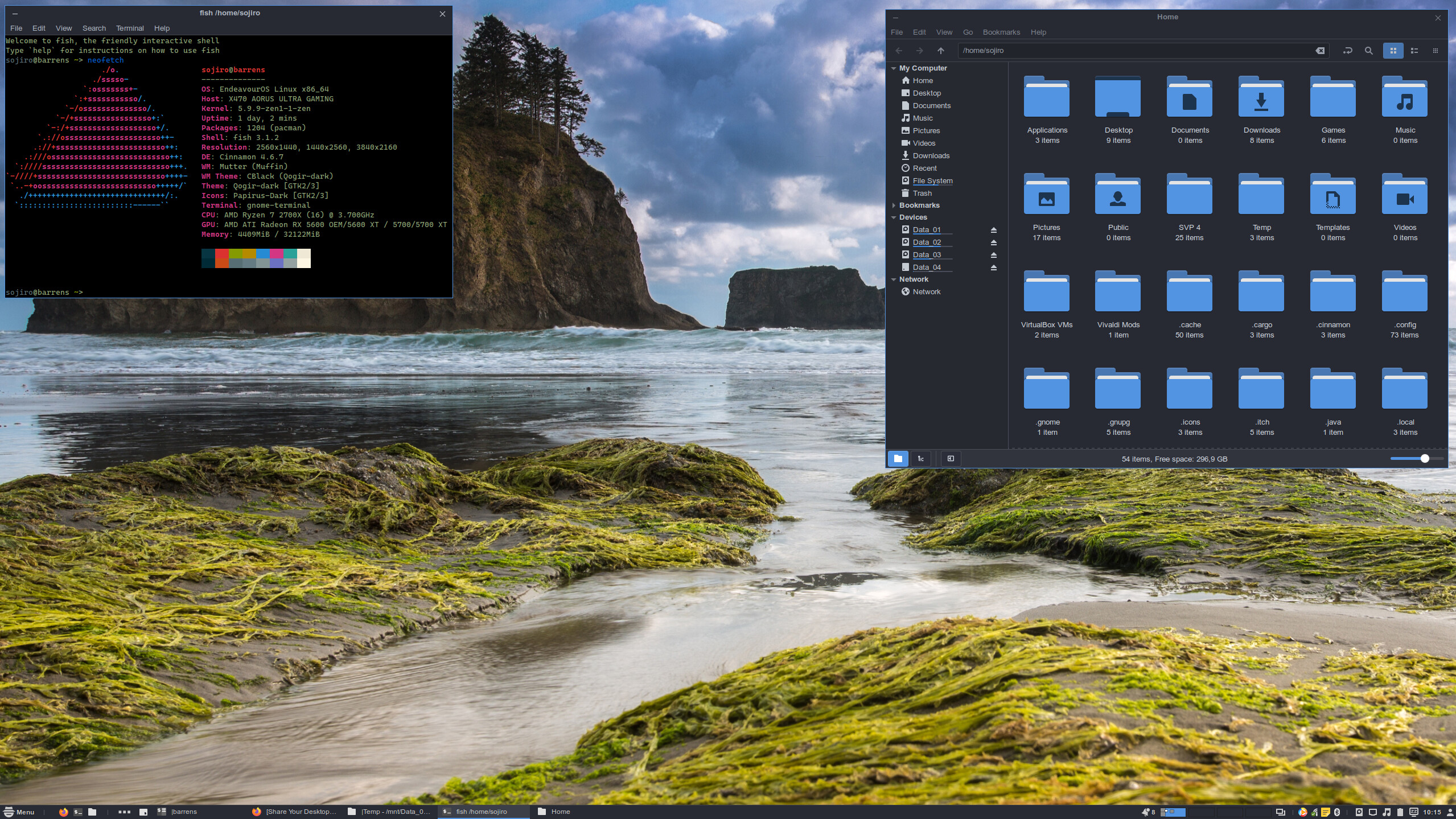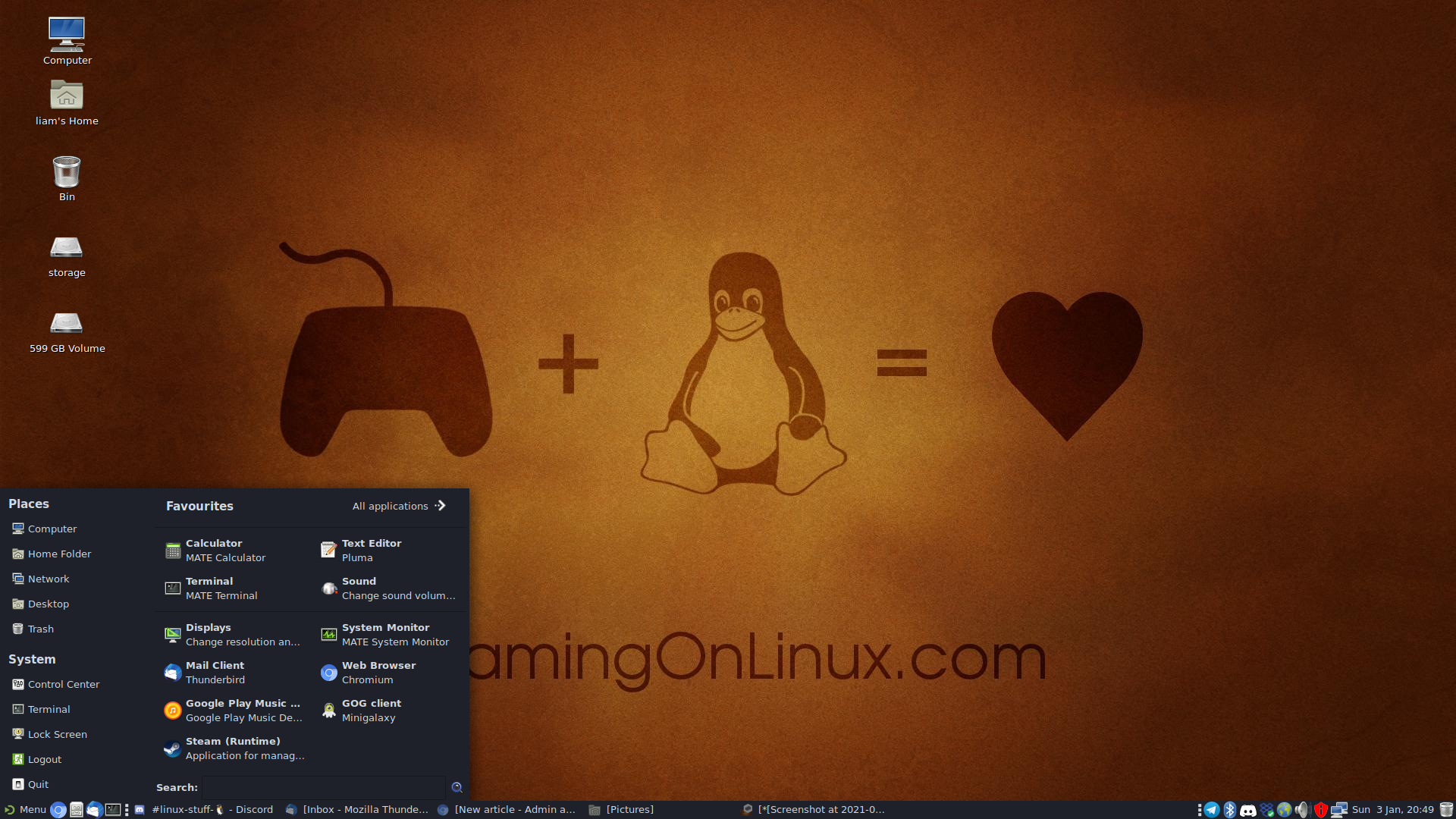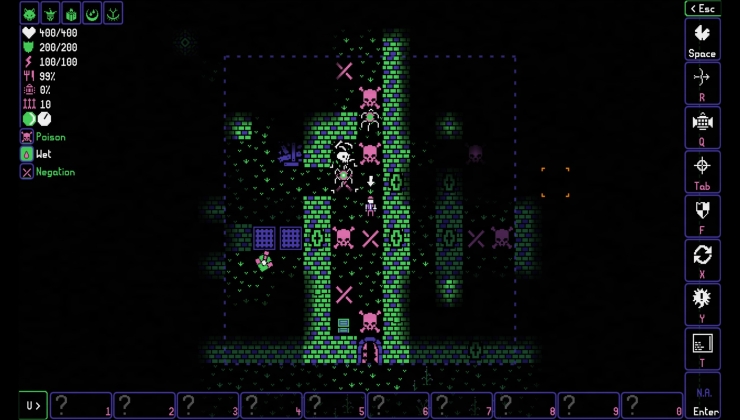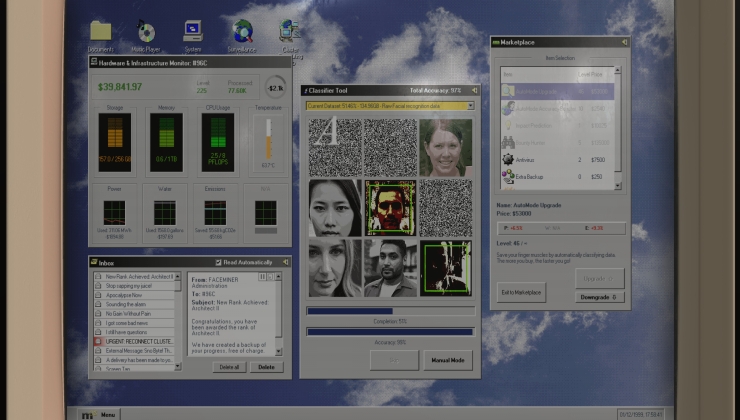How do you know when someone uses Arch Linux? They will tell you. Welcome to an article telling you about how I use Arch Linux, well sort of anyway. It's a running joke in the Linux community and now one I am very much a part of.
Over the many years I've used Linux since discovering it properly about 17 years ago, I've seen many distributions rise and fall. With that in mind, I've obviously used quite a lot of different distributions. Like many people, early on in my Linux life I was a "distro hopper", someone who can't sit still and has to keep trying everything out. Moving between the likes of Mandrake (before it was Mandriva), Fedora Core (the original Fedora name), openSUSE and eventually feeling quite at home when discovering Ubuntu.
A long time later, i wanted to be a bit more bleeding-edge and have all the latest bells and whistles so I settled on Antergos. It was based upon Arch Linux but gave you a nice installer, which eventually died like many distributions before it. Manjaro was an option too, which I used for a while (two times, years apart) but I found it to be too unstable for my liking due to the way they bundle updates, and they've made a lot of…odd decisions lately that I felt pushed me away from them.
So what to do? I felt a bit stuck. Ubuntu was too safe, not particularly exciting and I didn't want another normal distro. I was told some tales of EndeavourOS, a fresh distribution that is the successor to Antergos. Giving an easy to use installer, with plenty of desktop environments to pick and unlike Manjaro, they are right up close to Arch Linux on the packaging with EndeavourOS sticking to Arch upstream but they have a few of their own extras. This was exactly what I wanted, Arch Linux but easy to install and get going.
Pictured above - EndeavourOS plus the MATE desktop. It's not fancy, and the MATE desktop isn't full of bling but that's why I like it. For the most part: it stays out of my way, it's highly configurable when I want it to be and it's easy to use.
Here's the thing. EndeavourOS is absolutely not something I will recommend to new users, or to even reasonably confident Linux users because for most I still recommend other distributions talked about in this previous article. Why? You really do have to setup a lot yourself, sometimes annoyingly so and there are problems at times with Arch being so fresh with packages.
The most annoying issue so far was a bug in the Arch packaging of libcairo, which caused the demo of APICO and all Paradox Interactive titles that used their launcher to fail to launch from Steam with the normal Steam Linux Runtime. The issues were reported (#1 - #2), then to the libcairo developers too (here) and in less than 24 hours the fix was committed. Part of why I love open source and Linux so much at times, because finding issues is often nothing more than running something in terminal to see and then you can go and report it and help get it fixed. Issues like that are why I never suggest people go and use the likes of Arch Linux (or anything based on it) since the updates continually roll in and breakages can and will happen but you find them before other distributions do so it all balances out.
That said, EndeavourOS has actually been great. Surprisingly so too. It's now my /home on Linux and I continue to learn more about Linux every day when going a little out of my usual comfort zone with it.
If you're after something that's constantly up to date but easy to setup and you know what you're doing, EndeavourOS is the tip of the day.
Ubuntu was too safe, not particularly exciting and I didn't want another normal distro
Isn't this weird? I can really relate to it, but I don't really understand what drives it. It's the fundamental force behind distro-hopping I think.
I'm mostly settled on Mint, but there's still an itch that there might be something better out there. Certainly, Mint's biggest problem is the lack of an upgrade path. You basically have to re-install every two years, simple as that. Hardly ideal. But otherwise, it's amazing. So why am I constantly on the lookout for another distro...?
I have used manjaro on other machines in the past so I might give EndeavourOS a whirl next time I need to do a fresh install.
Funny enough for work i now run a few ubuntu headless servers, still getting used to apt but am happy about things like systemd, in many ways it makes diffrent distro a lot closer together.
I tried Antergos two times, and in both, the installation failed, I don't know why. So I tried Manjaro for a few days, and in that time it was too much bloated. I know that it improved this way a lot, but every time that I consider to use it, I read some annoying thing about. Manjaro is a good project but with bad leadership, some weird choices. It reminds Mint, which is a project that now I despise, that Chromium controversy was the limit of acceptable, it cut off the snap from default (which is ok), blocked the snap installation (not ok) and don't give any alternative to chromium in that time.
So, nowadays I prefer to support more "root" distro. If I decide to use an Arch based system, I'll try to learn how to install Arch, it's a bit silly to use a derivation just because of the installation, I mean, the distro should add features to the base, like what Ubuntu did with Debian. The same for Ubuntu too, if I need to use it, I'll install it (or some flavor), not mint, zorin, pop...
Nowadays I'm on OpenSUSE TW, amazing distro with an amazing community, I'm using for months and never had any issue, it's really underrated. Maybe we need to shout more about it.
I guess we been on linux for about the same amount of time, but funny enough i always sticked to opensuse as i felt it was the best kde distro, and yes i also reached the point where i felt it was boring, but right around that time tumbleweed started and i never looked back. At first it was tricky with an nvidia card but it gotten a bit easier once they gotten an nvidia repo for tumbleweed, i can only remember 2 issues with this rolling release, the bigest being when it took ages for nvidia to fix an issue with a new kernel. On new pc i went with an amd gfx card and the only other issue was one with vbox (need it for work). But overall its an amazingly stable rolling release wich is really close to new stuff.
Funny enough for work i now run a few ubuntu headless servers, still getting used to apt but am happy about things like systemd, in many ways it makes diffrent distro a lot closer together.
Is Tumbleweed not systemd based?
I was first encountered with Linux many, many years ago -25 if I recall correctly- but didn't really use it until 11 years ago or so. Since then, started with ubuntu, then quickly to Debian and stayed there for a long while because I didn't have new hardware and felt right at home with XFCE. Then new hardware came and my distro-hopping got pathologic lol. Stayed in Arch some months, Antergos, Anarchy, but Archa based weren't my cup of tea. Then to Ubuntu again, Pop_OS and some others like PureOS and Triskel -not for gaming, of course-. Then tried fedora and felt in love with it immediately. I guess, for GNOME users like me, it's the most adequate distro too.
Last edited by Arehandoro on 6 Jan 2021 at 12:13 pm UTC
I guess we been on linux for about the same amount of time, but funny enough i always sticked to opensuse as i felt it was the best kde distro, and yes i also reached the point where i felt it was boring, but right around that time tumbleweed started and i never looked back. At first it was tricky with an nvidia card but it gotten a bit easier once they gotten an nvidia repo for tumbleweed, i can only remember 2 issues with this rolling release, the bigest being when it took ages for nvidia to fix an issue with a new kernel. On new pc i went with an amd gfx card and the only other issue was one with vbox (need it for work). But overall its an amazingly stable rolling release wich is really close to new stuff.
Funny enough for work i now run a few ubuntu headless servers, still getting used to apt but am happy about things like systemd, in many ways it makes diffrent distro a lot closer together.
Is Tumbleweed not systemd based?
Yes, sorry i was not clear, i meant that i found getting stuff working on a lower level (timers, services) was exacly the same now thanks to systemd, on a low level the distros are not tnat diffrent anymore compared to 10 years ago.
I guess we been on linux for about the same amount of time, but funny enough i always sticked to opensuse as i felt it was the best kde distro, and yes i also reached the point where i felt it was boring, but right around that time tumbleweed started and i never looked back. At first it was tricky with an nvidia card but it gotten a bit easier once they gotten an nvidia repo for tumbleweed, i can only remember 2 issues with this rolling release, the bigest being when it took ages for nvidia to fix an issue with a new kernel. On new pc i went with an amd gfx card and the only other issue was one with vbox (need it for work). But overall its an amazingly stable rolling release wich is really close to new stuff.
Funny enough for work i now run a few ubuntu headless servers, still getting used to apt but am happy about things like systemd, in many ways it makes diffrent distro a lot closer together.
Is Tumbleweed not systemd based?
Yes, sorry i was not clear, i meant that i found getting stuff working on a lower level (timers, services) was exacly the same now thanks to systemd, on a low level the distros are not tnat diffrent anymore compared to 10 years ago.
Yeah, that's actually pretty nice. There are still disparity with where files are located and package names, but that's easier to figure out :)
Last edited by Arehandoro on 6 Jan 2021 at 1:33 pm UTC
But I have my fair share of criticism for SystemD and that's why I startet experimenting with other non-SystemD based distros (which rules out EndeavourOS for me) on my test rig. Void and Artix look the most promising to me. I had a Void KDE install up and running within 35 minutes and an hour later all my workflows were working too. It is a bit more work than running Manjaro because that takes care for a lot of details for you, but once learned you can use this knowledge on any distro.
Now I need to find time to migrate my main rig to Void :D
And after that, maybe I build a LFS system with runit :D
Last edited by Grimfist on 6 Jan 2021 at 12:52 pm UTC
Ubuntu is too safe and doesn't update fast enough for me with regards to kernels and mesa's. I need the latest to keep on gaming.
I was on Manjaro, it was the distro (together with the proton happening) that made me switch over to Linux and had a good experience.
Eventually I also needed a new home because of some of the stuff that happened at Manjaro.
I didn't wanted a normal distro and I liked arch so EndeavourOS it was!
I definitely needed to adjust my arch install script a lot. Manjaro come with a lot of stuff by default that I needed and liked and wasn't in the base Arch+Cinnamon package.
But, after many test runs in VirtualBox and adjusting my install script, my system is now always quickly up and running with all the packages I need, program settings are restored and the same goes for my Cinnamon settings and my system is basically almost the same as it was in Manjaro!

But I have my fair share of criticism for SystemD and that's why I startet experimenting with other non-SystemD based distros (which rules out EndeavourOS for me) on my test rig. Void and Artix look the most promising to me.Arch just hasn't felt as “Arch-ey” since the switch to systemd. It's not even about the merits or otherwise of systemd itself (I'll reluctantly admit it has its good points). But the old init system was glorious, and for me, since the moment I first used it, as much part of what made the distro special as pacman and the AUR. And they just dumped it.
Oh, I know they had their reasons, but still. I've been looking for an alternative for years. Nothing quite hits the spot.
Took me a while to figure what's wrong. And that's why I do not want any arch-based distro, since they will never deliver the best desktop experience out of the box.
But I needed something more or less rolling since I want to be pretty up2date with the libraries I target. Which left me with Solus.
Not always as fast as I'd like with updates, but mostly they have good reasons (I really needed kernel 5.9, which they blocked due to a regression with certain hardware), so I had to run a custom kernel.
But in general I'm very happy with Solus, and it's year 4 now since 1st of January, I never looked back. Which is surprising considering how often I hopped 2013-2017.
I really liked and used Antergos a long time. I would really like to use EndeavorOS as successor but unfortunately they replaced the installer of Antergos with Calamares. But Calamares offers no option to encrypt your hard drive in combination with an unencrypted boot. The only two distributions which offer this are Ubuntu and Fedora. So I will stick with them.
you can do that with manjaro-architect, too (which is exactly what i've done ^^)
Arch just hasn't felt as “Arch-ey” since the switch to systemd. It's not even about the merits or otherwise of systemd itself (I'll reluctantly admit it has its good points). But the old init system was glorious, and for me, since the moment I first used it, as much part of what made the distro special as pacman and the AUR. And they just dumped it.
This sums it up for me too. I really enjoyed the elegant simplicity of modifying one file (rc.conf) to control the system's services and network config. I don't know enough about how systemd works to say whether it's more or less efficient, but it sure is a whole lot harder to understand.
Curious honest question: What do you all mean by "normal" distros?
I think it equates to "mainstream" or "easy to use". I couldn't even get Manjaro to do basic stuff like finding my wired Xbox360 controller, so I'm definitely not ready for the likes of Arch or Endeavour. I'm super-technical and nerdy, but I just can't bring myself to care enough about a distro that doesn't even do basic stuff out of the box. Ubuntu has set a standard that I'm not interested in going below.
My next curiousity / distro hop will be to check out Elementary, then Pop. I was toying with the idea of checking Solus too, but their recent packaging squabble has left me a bit cold. So it'll be Mint vs Elementary vs Pop. Then I'll decide what I'm going to settle on for the next couple of years.
Certainly, Mint's biggest problem is the lack of an upgrade path. You basically have to re-install every two years, simple as that. Hardly ideal. But otherwise, it's amazing. So why am I constantly on the lookout for another distro...?
Oh? The upgrade path typically "opens" shortly after new releases, and they appear as a menu item in the update manager. The update manager does not, however, alert you about this; I believe that's intentional as the Mint camp typically, as well as any sane person would, tell a person not to do a major upgrade unless they had an actual reason to. It's fair to say I probably only knew about this because I subscribe to their rss feed on their homepage, and when they announce new releases, they also announce upgrade instructions typically; I doubt I'd be aware of the details otherwise. It's a few clicks to do and is pretty similar to just doing a normal update. All that being the case, if you don't mind doing new installs, keep doing them IMHO. Any OS, Windows and OSX included, tends to appreciate a fresh start once in a while. I've used the upgrade method for the last few major versions.
That said, for a long, long, time I've only made two data partitions for my installs -- home, and everything else, so if/when I ever need to do the nuclear option and actually reinstall it takes maybe twenty minutes combined; including picking out whatever software selection post install. Pretty much all my settings/icons/themes are in my home directory anyway, so even a fresh install takes very little time -- but I still haven't had to in a long time now. Not to make this about Windows, but honestly, whenever I have to do a full windows install it tends to be an all day affair in comparison; I'm not sure when it happened, but I tell ya, setting up Linux sure became far easier then windows at some point.
Curious honest question: What do you all mean by "normal" distros?
I think it equates to "mainstream" or "easy to use". I couldn't even get Manjaro to do basic stuff like finding my wired Xbox360 controller, so I'm definitely not ready for the likes of Arch or Endeavour. I'm super-technical and nerdy, but I just can't bring myself to care enough about a distro that doesn't even do basic stuff out of the box. Ubuntu has set a standard that I'm not interested in going below.
My next curiousity / distro hop will be to check out Elementary, then Pop. I was toying with the idea of checking Solus too, but their recent packaging squabble has left me a bit cold. So it'll be Mint vs Elementary vs Pop. Then I'll decide what I'm going to settle on for the next couple of years.
Fair enough :)
In that regard, once the system is up and running, I find all of them almost equally easy/difficult to run/maintain. And I certainly don't need/want the extra time for configuring things from scratch, like LFS. And it is not that difficult either, there're millions of guides and scripts out there that do the hard work and basic configs automatically.
From a few years back, I feel like going for not mainstream distros or difficult to set up has become very popular, and mainly to show off of to tell that "mine is bigger than yours" sort of thing, which I honestly despise.
Maybe it's an age thing.
P.S: Pop_OS! is lovely. I even use their shell in fedora :)















 How to set, change and reset your SteamOS / Steam Deck desktop sudo password
How to set, change and reset your SteamOS / Steam Deck desktop sudo password How to set up Decky Loader on Steam Deck / SteamOS for easy plugins
How to set up Decky Loader on Steam Deck / SteamOS for easy plugins
See more from me